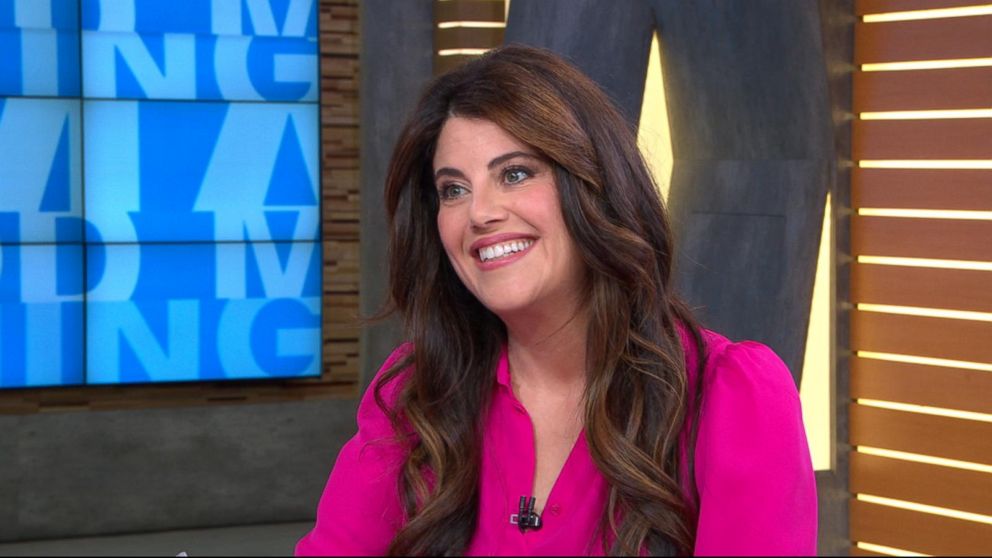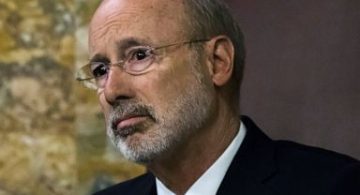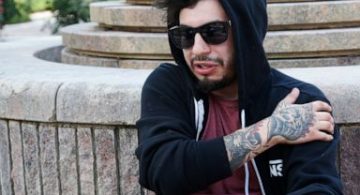
Transcript for Monica Lewinsky takes on name-calling in new campaign
A lot more brave than I am. Now to that ABC news exclusive. Monica Lewinsky, she’s speaking out against bullying. October is bullying prevention month and she’s here launching a new campaign taking on name-calling. We’ll speak with her live in a moment. First Amy has more on this project. Good morning, guys. We know 20 years ago Monica was the target of a very public shaming. Well, now Monica Lewinsky teaming up with an army of celebrities to fight back against harassment in a very moving campaign. It’s called defy the name. Take a look. I think the kinds of people who have had those experiences of having been bullied — Reporter: Monica Lewinsky has an urgent message. She describes herself as patient zero, the first person to be cyberbullied ever and to have suffered a vicious smear campaign that followed her for two decades since being at the center of scandal playing out online. I’d have a long list of bullying from childhood all the way up. Reporter: That’s why this morning Monica Lewinsky is working with the production team to deliver her mission, standing up for the voiceless and the isolated. The new psa launching today. I’m John Oliver also known as dumb Loser. Reporter: Some of the biggest celebs were called losers Tao to and still went on to do great things. Lena, the fat, whiny — The skinny piece of crap Tony Hawk. Changing their Twitter display names to the names they were bullied by to send a message to all those bullied you are not alone. Monica Lewinsky joins us now. Monica, thanks for being with us. We know you’ve been vocal about having been called names in the past and name-calling is something almost everyone has faced. Talk about the power of defy the name. I love this psa. Thank you. And thanks for having me. Name-calling is the most common form of bullying that we see and as you were saying I think everybody knows what it’s like to be called hurtful and harmful names, so we call this campaign #defythename because it’s about not letting the names that other people call you define who you are. You know, deny the name. Don’t let being bullied define you. I love that you’re not in the psa but you are participating in the campaign. You’re actually going to change your name live on the air so I’ll let you do that right now. Well, so let me just say first too so people know how to be involved that are called to action and why I did this is that we want people to change their display name if they feel brave enough so not your Twitter handle or your user name but your display name on all social media platforms to include your bullied name. So that’s what I’ve done and my bullied name is Monica chunky slut stalker that woman Lewinsky. Is that hard to say out loud? It is, it is and lucky me I had a lot of names to choose from, so it was quite a process, I think, to go through, but I felt it was important to walk the talk and to — we’ll see at the end of the month if I feel they have less power to them over me. And to know you’re not alone and to see it and see that picture, that visual of all of those names you’ve been called. It’s a powerful thing. Yeah, it is and I’m grateful to all of the people who participated in the psa and have stepped up to share the names that they were called growing up and really I think what we really want to do here is create a community online of empathy and showing people who are going through this right now that they’re not alone and many people have gone through this and they have not let it define the rest of their life. Most people probably have gone through this. How about you, Amy? Are you going to change your fame? Yes, I said I would. I am because when I was a new girl in sixth grade I was a competitive gymnast, underdeveloped an the boys started calling me skeeter. You can figure out what that means. And. I’m sorry. I was sobbing in the bathroom and they would call me it. Yell it at me. Write it on the bathroom wall so I will do the same. You will see that on my social media accounts later today. Now, this psa campaign has come at a time when we’re all talking about the public shaming of Dr. Christine blasey Ford and, of course, in regards to supreme court nominee Brett Kavanaugh. A couple of weeks ago you tweeted I am so sorry this woman was outed without consent. I am sorry for what she endured as a teenager and thank her for her bravery stepping forward. Senators are now voting on the nomination of Kavanaugh. What do you think about how her story, this story has been handled? Oh, Dr. Ford has been incredible. I mean, she was bullied. She was called names and she didn’t let that stop her from being brave and I don’t believe she wanted to testify. I know what that’s like. It’s a hard thing to do and she’s just been an incredible role model in bravery. I know you don’t want to talk about the past but a year ago — You are right, Amy. I know that. I’ve been told that. But you tweeted me too a year ago. Correct. What do you think about that movement and where it is a year later. You know, it’s — I think it’s been both heartbreaking and heartwarming to see the millions of people around the world both women and men standing up essentially raising their hands on social media and being counted. I think, you know, personally and many of us have a lot of gratitude to the woman who started the movement and all the brave women would stepped forward and picked that back up in this last year. I think it’s been extraordinary and for younger generations it will never be the same. You say you want to create a more compassionate internet. Do you think that hashtags like me too, #believewomen, #whyididn’t. Reporter: All play a role. Absolutely. Social media can be a playground and a breeding ground really for the kind of vitriol and hateful speech we’ve seen in bullying online but I think with the hashtags, what we see is something extraordinary that happens online too. So with #metoo and the recent hashtags — I’m sorry. I need water. I’m nervous. You’re doing amazing and talking about something that’s so personal. Sorry. And yet has become so universal. I think, you know, we’ve seen with #metoo and even if you think back to the als bucket challenge, none of these social movements couldn’t have happened without social media, without the internet, so it’s an ambitious goal to try to make the internet and social media more compassionate but we have evidence that we can do that. For victims of bullying, how important is closure? Do apologies matter? You know, I think it varies person to person and I think that what we see is what’s more important in some ways is that the targets of bullying feel supported and I think one of the most important things probably the tip or advice I give people is not suffering in silence. You know, so there is no shame in having been bullied and too often people sort of stew and marinate in that shame and really suffer. Monica, do you feel less alone today with all of these movements? I do and I’m very grateful for that. We’re glad you’re doing so well and thank you for your work in helping those who have been bullied. We appreciate your candor and honesty and this movement. Thank you, Amy.
This transcript has been automatically generated and may not be 100% accurate.





